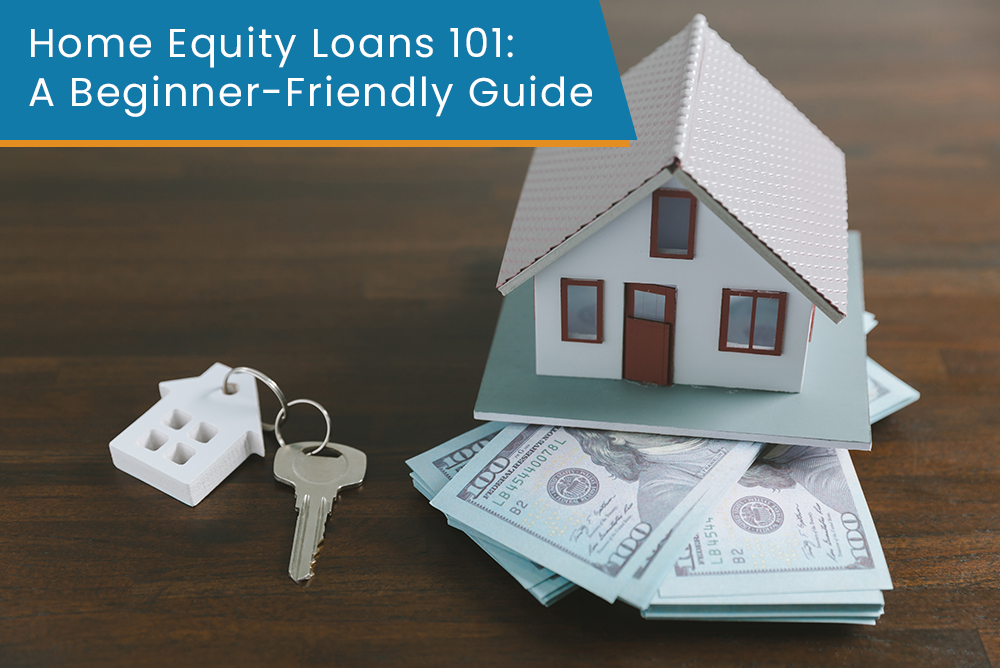
Home Equity Loans 101: A Beginner-Friendly Guide
Tags:
You probably have lots of ideas for what you could do if you had more money to spend. You could renovate your home, pay off high-interest loans, plan for retirement, invest, or do anything else.
Looking at the equity you have built in your home is a common way to get the cash you need. Second mortgages are a fantastic option for many people, and this article will help you better understand how a second mortgage can be right for you.
Like with all mortgages, there is a lot to consider. We want you to understand what a second mortgage is, how it differs from your first mortgage, when you should (and should not) consider a second mortgage, and how to assess your eligibility.
1. Understanding Second Mortgages
Understanding a great deal about obtaining a second mortgage is important, and this article is an excellent place to start.
You should know that a second mortgage differs from your first mortgage and when you should/should not begin a second mortgage. We will also introduce you to some common concepts that we use when discussing a second mortgage.
Second mortgages are just that, a second loan taken out against the equity in your home on top of your pre-existing mortgage. It is a way to access the equity you have built in your home and borrow money to invest, consolidate your debt, or save in an emergency fund.
At the outset, an essential thing you should understand about second mortgages is that they typically hold a subordinate position to your first mortgage. This facet means that the repayment priority goes to your first lender.
Second mortgages often come with higher interest rates (but that is not guaranteed). They are a great option in certain circumstances, but only on some occasions, so it's essential to know the specific use cases where a second mortgage is best for you.
2. Difference From Your First Mortgage
Your first mortgage is the primary loan you used to purchase your home or property. These mortgages often have a repayment period of 15 to 30 years. To repay the loan used in the purchase, you pay a monthly fee that covers both the principal and the interest.
Second mortgages usually have a shorter repayment (especially compared to your first mortgage). Rather than the borrowed amount being used for the entire purchase price of the property, the amount you can borrow is dictated by the amount of equity you have. To learn more about second mortgages, you can read our article here.
The main difference between a first and second mortgage is the purpose of the loan. A first mortgage is a loan for purchasing your property. In contrast, a second mortgage allows you to extract some of the equity in your home to put towards anything you like.
Since these are two separate mortgages, you will have to manage two separate monthly payments, so it's worth considering if you can do that beforehand.
3. Know When (And When Not) to Get a Second Mortgage
Depending on your circumstances, a second mortgage could be an excellent decision. Second mortgages are a great way to get money for investments, debt consolidation, home improvements, emergency funds, planning for retirement, or anything else you may need.
One of the great things about a second mortgage is that you can do anything with the money. While there is potential for lower interest rates than other types of loans, second mortgages are based on your credit score, equity in your home, and other variable factors.
Two primary types of second mortgages are a Home Equity Loan and a Home Equity Line of Credit (HELOC). These two methods offer flexibility in how you receive money from the equity you have in your home. A Home Equity Loan is a one-time lump sum payment.
A Home Equity Line of Credit allows you to take out the money as you need, and as you pay it off, you can borrow more money (up to the limit), much like a credit card.
Of course, you need to understand that the interest rates on your second mortgage will likely be higher than your first mortgage. You must also manage two mortgage payments instead of the original one. Therefore, before taking out a second mortgage, you should seriously consider the pros and cons of repayment.
4. Eligibility
To be eligible for a second mortgage, you must meet your lender's requirements. These usually include the lender looking at your credit score (the higher, the better), the equity you hold in your home (also the higher, the better), and your Loan To Value (LTV) Ratio (the ratio between your mortgage amount and the appraised value of your property).
Canadalend has access to Canadian banks, credit unions, and other lenders, so we can ensure you get the best and most competitive rates on the market. Our friendly and professional agents thoroughly understand all products, rates, and features of the financial tools available to you.
5. Seek Professional Advice
Creating a second mortgage can be a great way to get the money you need. Yet, you must carefully consider all variables to ensure this is your right choice. We have already discussed some of a second mortgage's pros, cons, and complexities. What you need is professional guidance from people you trust.
We are committed to finding you the best home equity loan to fit your needs. We offer great rates and 24-hour approvals. Our team of licensed mortgage professionals will help you every step of the way- even offering you a free personal consultation.
For more information about second mortgages (and alternatives), call Canadalend at 1-844-586-0713 or contact us here.